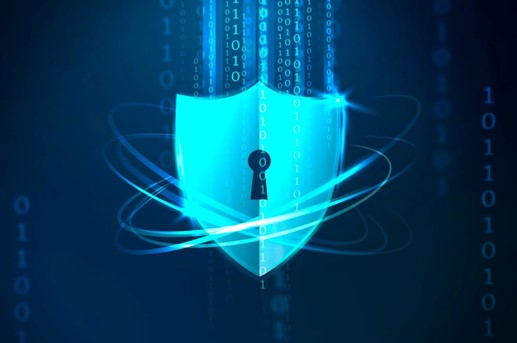
What Are The Advantages of Cybersecurity Compliance for Manufacturers?
8
min reading time
In an era where digital threats grow in complexity and frequency, cybersecurity is no longer a secondary consideration but an essential part of manufacturing operations. Compliance with security standards offers manufacturers a structured approach to managing the growing risks of digital threats and securely handling sensitive data. Compliance also helps companies meet industry regulations, protect intellectual property, and avoid potentially devastating financial losses.

Competitive Advantage
With cyber incidents regularly making headlines, businesses implementing robust security practices set themselves apart in a crowded marketplace. These companies convey a message of resilience and reliability, appealing to consumers, partners, and stakeholders who value data protection and operational integrity.
In high-stakes industries such as automotive, healthcare, and consumer electronics, where secure data handling and intellectual property protection are critical, prioritizing cybersecurity compliance is essential.
For example, a medical device manufacturer that adheres to stringent security standards offers reassurance that sensitive patient data is handled responsibly, earning the trust of hospitals, healthcare providers, and patients. Similarly, automotive manufacturers adopting cybersecurity best practices demonstrate commitment to passenger safety by securing vehicle software against potential cybersecurity threats in the EU.
Moreover, manufacturers with compliant cybersecurity measures are better equipped to navigate regional data protection regulations like the GDPR in the EU, CCPA in California, or Japan’s Act on the Protection of Personal Information (APPI). Compliance with cybersecurity policies enhances a manufacturer’s reputation, opening doors to new markets with complex data privacy standards and fostering brand credibility across global regions. This adaptability positions the company as a trusted, compliant player and provides a foothold in regions where data security expectations are highest, thereby amplifying its competitive advantage.
Attracting business partnerships and retaining customers
For manufacturers, compliance with security standards impacts customer trust and is essential for building and maintaining business partnerships. Manufacturers often partner with suppliers, distributors, and service providers in today's interconnected supply chains.
However, these partnerships require mutual trust, especially concerning data security. Companies increasingly conduct rigorous security assessments of potential partners, requiring them to meet high protection and compliance standards to mitigate supply chain risks.
A manufacturer with robust security practices demonstrates a proactive commitment to safeguarding data and intellectual property. This readiness reassures potential partners, attracting those prioritizing risk management and data security in their decision-making processes.
For instance, a company producing industrial machinery might win contracts with international clients by showing its adherence to standards, assuring clients that it won’t introduce vulnerabilities in its operations.
Today’s consumers are more aware than ever of data security risks, often favoring companies that demonstrate a strong commitment to protecting personal information. High-profile data breaches have shown the consequences of poor safety practices, making data protection a key consideration for customers when choosing a brand.
Manufacturers investing in IT security signal their customers that their data and privacy are safeguarded. This focus on data protection helps foster loyalty and long-term relationships, establishing a reputation as a reliable and responsible manufacturer.
A manufacturer’s commitment to compliance often becomes part of its brand identity. By actively communicating its efforts for cybersecurity, it reassures existing customers and attracts new ones who value privacy and safety. Over time, these practices strengthen customer satisfaction, retention rates, and brand reputation, creating a virtuous cycle of trust and reliability that further boosts the company’s competitive standing.

Financial Security
The financial stakes associated with non-compliance are substantial, particularly in highly regulated industries where data protection is critical. Manufacturers handle vast amounts of sensitive data, from proprietary designs and trade secrets to client and supplier information.
In a breach, they risk the theft of valuable intellectual property and exposure to severe regulatory penalties, reaching millions of dollars per incident. For example, under regulations like the General Data Protection Regulation (GDPR) in the EU, companies can face fines of up to 4% of their annual global revenue for non-compliance.
Beyond regulatory fines, the financial repercussions of non-compliance extend to legal fees and lawsuit settlements, and other costly liabilities that can escalate rapidly. The cost of addressing a breach often includes hiring forensic experts to investigate, restoring compromised systems, and compensating affected customers.
Additionally, companies must notify impacted stakeholders and may need to offer credit monitoring services, which further increases post-breach expenses. In comparison, the initial investment in cybersecurity compliance, while requiring resources, is more cost-effective than the compounded financial damage caused by a breach.
For manufacturers, the long-term financial impact includes not only these immediate recovery costs but also the loss of trust and reputation among clients, partners, and the public. Such damage can lead to lost contracts, diminished customer loyalty, and a weakened position in the market, resulting in a gradual decline in revenue.
Achieving Long-Term Cost Efficiency
While cybersecurity compliance requires ongoing investment, it leads to significant long-term savings and financial efficiency. By committing to a compliance framework, manufacturers benefit from structured measures that reduce the likelihood of costly cyber incidents.
Regular audits, employee training, and security system updates become part of a proactive defense against potential breaches, creating a resilient infrastructure that reduces the chance of disruptive attacks.
Adopting compliance frameworks like ISO/IEC 27001 or industry-specific standards fosters a systematic approach to security, helping manufacturers avoid expensive mistakes that result from fragmented or outdated practices.
Compliance frameworks encourage regular assessments, meaning that safety protocols are continuously evaluated and improved to stay ahead of emerging threats. This proactive stance minimizes the need for reactive spending following an incident, such as emergency network safety overhauls or brand damage control.
In addition, a well-established compliance strategy allows manufacturers to optimize their budgets by streamlining their protection operations. When cybersecurity is integrated into the organization's fabric, companies can identify and eliminate overlapping or redundant protection measures, thereby reducing unnecessary expenditures. Instead of managing ad-hoc safety solutions, they implement a unified compliance-driven approach that ensures all systems work efficiently together.
Over time, this structured investment in cybersecurity compliance translates into minimized financial vulnerabilities, enhanced operational efficiency, and overall cost savings. By reducing their exposure to risks, manufacturers can confidently allocate resources to innovation and growth initiatives, knowing that they have a secure and compliant foundation to support their business objectives.
This proactive and financially responsible approach to cybersecurity positions compliant manufacturers as financially resilient and ready to handle the evolving threat landscape without compromising their budgets or future growth.

Safeguarding Sensitive Information
For manufacturers, intellectual property is a key asset. Prioritizing network security helps protect sensitive information like product designs, patents, and production methods, which, if exposed, could be exploited by competitors or cyber criminals. High-profile breaches like those involving Equifax and Target remind us of the critical importance of cybersecurity, as these incidents resulted in millions of customer records being compromised.
Strong measures guard proprietary data and customer information, ensuring that this information is not exposed to unauthorized access or theft. By adhering to compliance standards, manufacturers establish a structured approach to data protection, making it less likely that intellectual property will fall into the wrong hands.
Mitigating operational disruptions and business continuity
Cyberattacks on manufacturing systems can severely disrupt operations, leading to production delays, financial losses, and damaged reputations. A cyber-resilient organization is protected against attacks and better equipped to respond to potential incidents without significant downtime.
Compliance frameworks equip manufacturers with structured protocols for data protection, risk assessment, and incident response, ensuring the continuity of operations even in the face of a cyber threat.
In addition, manufacturers can maintain operational resilience by implementing redundant systems and regular backups as part of a compliance program. This preparedness is critical in minimizing the impact of security incidents and ensuring that business can continue uninterrupted.
New Opportunities through Compliance
Choosing the best cybersecurity certifications for your business can be a critical enabler, if you are looking to expand into new regions. Countries worldwide have enacted laws and regulations that dictate how companies must handle data and protect against cyber threats. Manufacturers that comply with standards like GDPR, NIST, or ISO/IEC 27001 are better positioned to enter new markets, particularly those with strict regulatory landscapes like the EU and North America.
When manufacturers enter these markets with cybersecurity compliance integrated into their operations, they reassure stakeholders and customers of their commitment to high-security standards. This foundation supports brand credibility, facilitating smoother entry into new regions and boosting the organization’s reputation as a responsible player on the global stage.
The safe adoption of these technologies allows manufacturers to benefit from technological advancements without compromising safety. By integrating cybersecurity at every level, manufacturers can adapt more easily to digital transformations while maintaining strong defenses against emerging cyber threats.
Summary
Cybersecurity compliance is essential for manufacturers to protect sensitive data, maintain operational continuity, and build trust with clients. Getting professional support from CCLab can help companies navigating amongst the most recent cybersecurity standards and regulations. Manufacturers and developers can achieve key certifications such as Common Criteria (CC) and ISO/IEC 27001, ensuring they meet industry standards and regulatory requirements.
CCLab provides industry-specific cybersecurity compliance services like consumer IoT cybersecurity, Industrial Automation and Control Systems (IACS) security, penetration testing, and medical device cybersecurity solutions, all tailored to fortify a company’s cybersecurity framework. Through CCLab’s guidance, manufacturers safeguard their operations and gain a competitive advantage, opening doors to new markets and partnerships.
Related downloadables
Related downloadables


Common Criteria Evaluation Process infographics
Common Criteria Evaluation Process infographics
This downloadable infographics introduces the Common Criteria Evaluation process to you. Explore now for free.


Guide and Checklist for Common Criteria Evaluations - updated with EUCC Scheme
Guide and Checklist for Common Criteria Evaluations - updated with EUCC Scheme
Learn everything you need to know for a successful Common Criteria certification project. Save costs and effort with your checklist.


Guide for Radio Equipment Directive (RED)
Guide for Radio Equipment Directive (RED)
Read and learn more about the Radio Equipment Directive (RED), download our free material now.
Related news

Preparing Legacy Systems for Common Criteria Certification
Legacy systems power critical operations across industries worldwide, yet they present unique challenges when organizations pursue Common Criteria certification. The clock is ticking for manufacturers and enterprises who must navigate complex compliance requirements while maintaining operational continuity. Organizations pursuing Common Criteria certification must address unique challenges when dealing with legacy infrastructure, but with the right approach, success is achievable. The urgency cannot be overstated. Regulatory deadlines approach rapidly, and the cost of non-compliance continues to escalate. Legacy systems that once served as reliable workhorses now require strategic transformation to meet modern security standards. This guide provides actionable strategies to prepare your legacy infrastructure for certification success.
10
min reading time
.jpg)
The CRA as the Cornerstone of the EU Cybersecurity Ecosystem
This article provides an in-depth overview of the EU Cyber Resilience Act (CRA), explaining why the regulation was introduced, its key security requirements, conformity assessment routes such as Module A, the role of harmonized standards, and the lifecycle obligations manufacturers must meet.
10
min reading time

Beyond 2025: Why RED is the Blueprint for CRA Success
The August 1, 2025 deadline for the Radio Equipment Directive (RED) Delegated Act has passed. You have likely spent the last year scrambling to test devices, freeze software, and secure approvals. But just as the dust settles, a new challenge looms: the Cyber Resilience Act (CRA) is now getting in force, with full application expected by December 11, 2027. The immediate worry for many manufacturers is simple: Was the investment for RED wasted? Is the work done for the 2025 deadline just a temporary fix destined to be withdrawn when the CRA takes over? The answer is no, if a strategic approach is taken. The two regulations are "in sync," and the work done for RED-DA is the essential foundation for future CRA compliance.
9
min reading time
